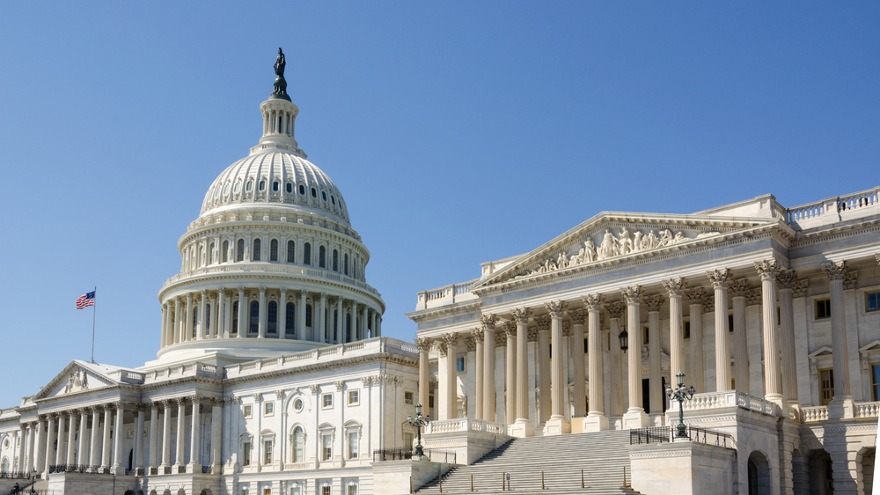Both House and Senate craft proposals to delay CECL implementation

By subscribing, you agree to receive communications from Auto Remarketing and our partners in accordance with our Privacy Policy. We may share your information with select partners and sponsors who may contact you about their products and services. You may unsubscribe at any time.
WASHINGTON, D.C. –
Apparently, federal lawmakers heard the concerns from banks, credit unions and finance companies about the challenges of preparing for significant accounting changes in connection with reserving for losses.
A day short of three weeks after a proposal surfaced from six members of the Senate, 10 House representatives crafted potential legislation to delay this major accounting shift for auto-finance providers and other lending operations.
To recap, the Financial Accounting Standards Board (FASB) is looking to ensure that financial institutions have solid measures in place to ensure they have appropriate reserves for any future losses based on the life of each auto loan. As a result, the board has instituted its new Current Expected Credit Loss model (CECL).
The new model will require higher levels of loan loss reserves and lead to changes in lending practices and portfolio management. It will also require a significant amount of data capture, analysis and modeling to meet the implementation deadline of Dec. 15.
However, both Congressional chambers are looking to delay implementation, possibly into 2022. Rep. Ted Budd, a North Carolina Republican, led the charge for the House bill that was introduced on Tuesday. A similar proposal arrived in the Senate on May 22.
“I never knew when I took office that the implementation of accounting standards would prove to be such an important issue, yet I’ve been pleased to see it provide so many opportunities for working across the aisle in this hyper-partisan era,” Budd said in a news release. “The Financial Accounting Standards Board, or FASB, is moving forward with an accounting standard affecting generally every financial institution in the country and the customers they serve, without a proper study of its broader economic impact. To me, this is yet another example of an unaccountable bureaucracy not taking the appropriate steps to ensure that it is helping instead of hurting folks.
Subscribe to Auto Remarketing to stay informed and stay ahead.
By subscribing, you agree to receive communications from Auto Remarketing and our partners in accordance with our Privacy Policy. We may share your information with select partners and sponsors who may contact you about their products and services. You may unsubscribe at any time.
“I am particularly concerned about how this new accounting standard will impact lending in economic recessions and affect access to capital for the consumer in financial downturns. It is now up to us in Congress to make FASB complete this common-sense task and that’s what my bipartisan bill would do if enacted,” Budd went on to say.
Rep. Vicente Gonzalez, a Texas Democrat, added, “CECL affects a very broad part of our business sector who engage in lending, big and small. But those effects are not known, and they too could be big or small. My concern is that we have paid too much attention to the largest entities and not enough to the smallest, where a $10,000 compliance bill just to learn whether you do or do not need to change your business plan, is just too much for some to absorb.”
Experts explained that CECL’s requirements mean finance companies must perform life-of-loan loss forecasting as soon as the provider says yes to a contract. Accounting specialists also said CECL requires lending institutions to calculate expected credit losses using reasonable and supportable forward-looking macroeconomic and financial forecasts and report the losses on a quarterly or monthly basis.
Industry advocates contend many firms lack the macroeconomic and financial forecasts, historical macro data and tools required to simulate the range of credit loss scenarios required by CECL, making the developments on Capitol Hill welcomed news.
“We welcome the introduction of the CECL Consumer Impact and Study Bill of 2019 by Rep. Vicente Gonzalez and Rep. Ted Budd and appreciate their leadership on this important issue,” said Rob Nichols, who is president and chief executive officer of the American Bankers Association.
“This bipartisan legislation, cosponsored by eight other House lawmakers, would require FASB to delay the implementation of CECL until a quantitative impact study can be completed. A rigorous study conducted by regulators is needed to assess the effect this new standard will have on the ability of financial institutions to serve their customers and support the broader economy, particularly when the economy is under stress,” Nichols continued.
“We urge Congress to quickly consider this bill, as well as the Continued Encouragement for Consumer Lending Act introduced in the Senate, and delay the implementation of CECL until we have a better understanding of its true economic impact,” he went on to say.
National Association of Federally-Insured Credit Unions president and CEO Dan Berger added, “As it stands, CECL is an unnecessarily complex accounting method that only adds to the mounting regulatory stress placed upon credit unions. Taking the time to fully study the consequences of this new regulation on consumers' access to credit and the economy as a whole is a necessary step that must be taken.”
And Jim Nussle, president and CEO of the Credit Union National Association, made this assertion in a letter to Sen. Thom Tillis, the North Carolina Republican who led the proposal draft in the upper chamber.
“We understand the independence of the FASB and the extent of Congress’ role in setting accounting standards. Thus, we urge Congress to utilize the authority it does have in order to improve CECL, or at a minimum, ensure there is sufficient, relevant information regarding CECL’s impact from which future decisions can be made. We believe the Continued Encouragement for Consumer Lending Act would do just that,” Nussle wrote.


